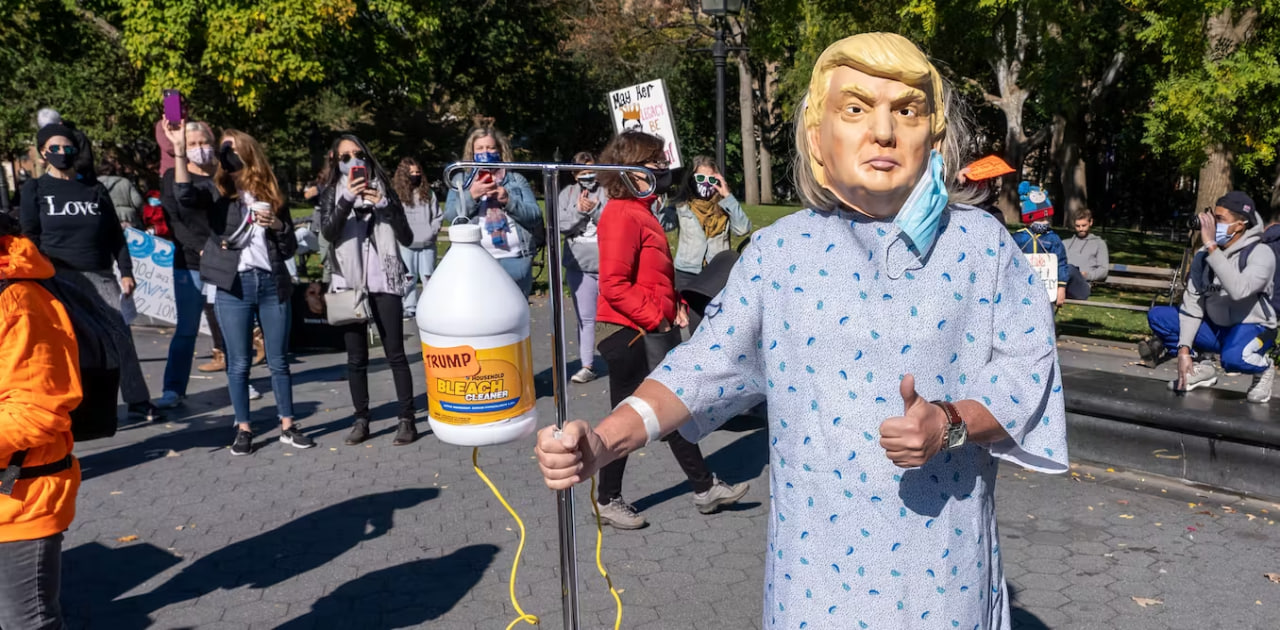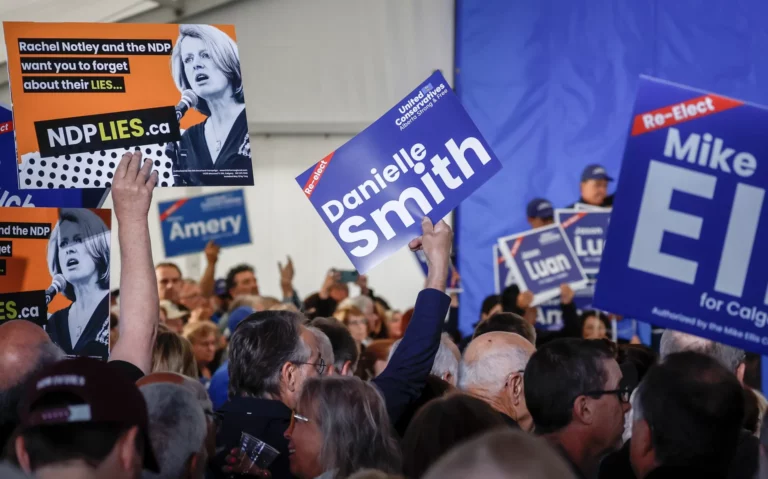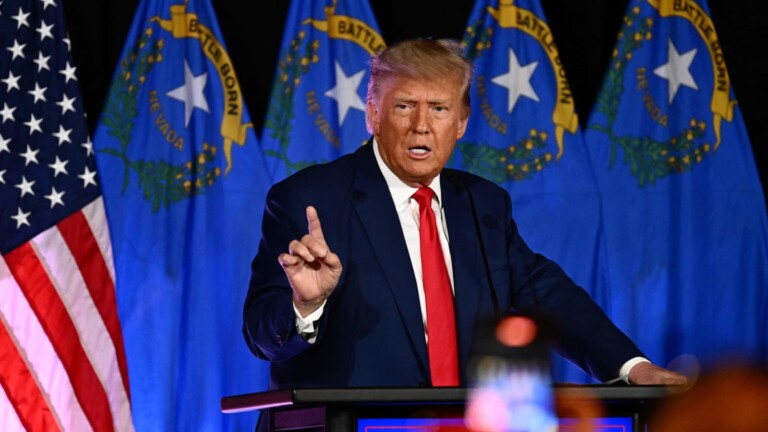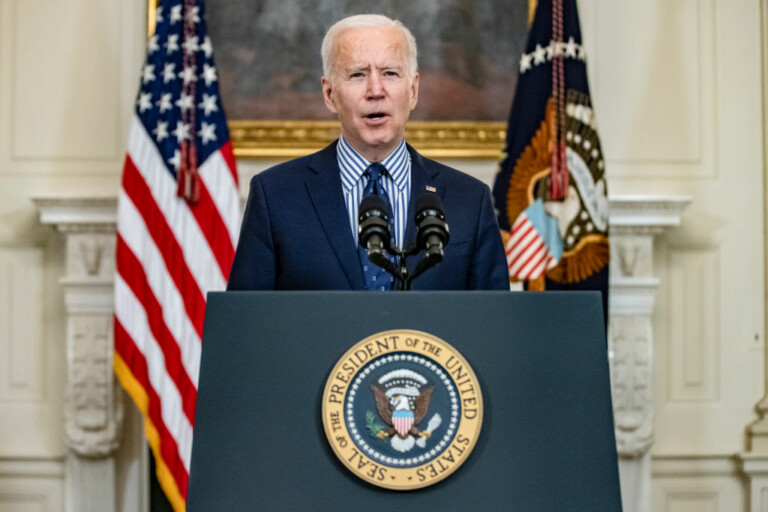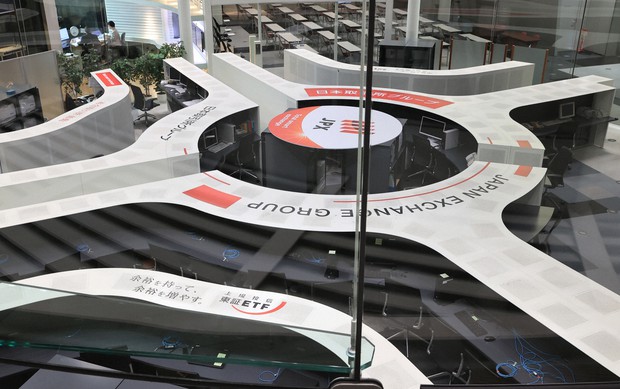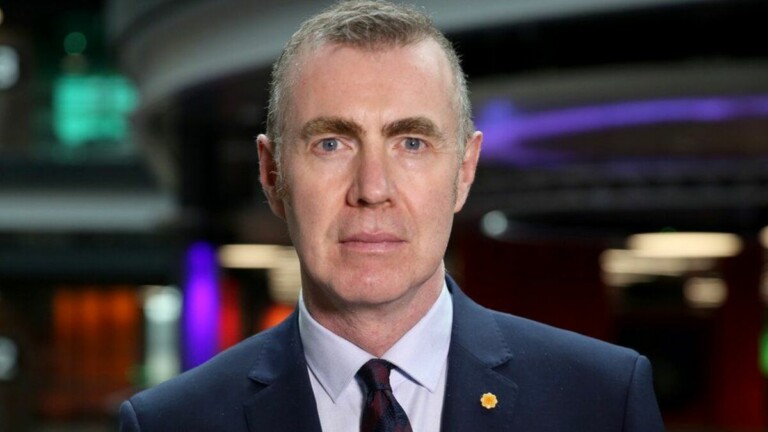Biden is old. Trump has weird hair. Biden mangles the English language. Trump barely seems to understand it.
There’s no question that it is easy to make fun of the two top presidential candidates for 2024.
But as I explain in my new book, “Trump Was a Joke: How Satire Made Sense of a President Who Didn’t,” not all political comedy is equal.
Jokes that focus on physical traits – fat bellies, bald heads, bumbling speech – foster negative candidate views that can exhaust voters, as does mocking scandals, whether it’s the mishandling of classified documents, sexual misconduct or family drama.
In contrast, satire – which centers on faulty logic, abuses of power and flawed thinking – can compel citizens to volunteer, donate to campaigns and vote.
Averting apathy
A key factor to watch this election cycle is voter fatigue.
There was record turnout during the 2020 election. Nearly two-thirds of eligible voters cast a vote, 7 percentage points higher than in 2016. However, recent polling data suggests that 2024 may be different, with 38% of voters saying they were already exhausted at the prospect of another matchup between Trump and Biden.
Voter fatigue typically translates into lower voter turnout, and low voter turnout correlates to weaker democratic institutions.
This is where comedy comes in. Humor can alleviate depression, fear, sadness and other negative emotions.
The catch, though, is that even if humor combats exhaustion, it might replace it with negative views of the candidates and cynicism about the entire democratic system.
Mocking leads to burnout
Political comedy is complex and highly varied, but it can be divided roughly into two camps: mockery and satire. Mocking comedy tends to negatively affect political participation in two ways. It can create negative views of candidates, and this, in turn, can lead to voter apathy.
Communications professor S. Robert Lichter and political scientists Jody C. Baumgartner and Jonathan S. Morris surveyed years of joke data in their 2015 book, “Politics is a Joke!” They concluded that the political humor on late-night television was inherently negative and tended to focus more on scandals than on policy. What’s more, they found that there was a connection between negative jokes and negative public perceptions of candidates.
The catch, though, is that voter apathy will happen only if voters feel burned out by both candidates, because that leads to exhaustion with the system they represent.
During the 2008 election, vice presidential candidate Sarah Palin found herself the butt of countless jokes, while then-presidential candidate Barack Obama and his running mate, Joe Biden, were largely able to duck the searing critiques of comics.
Research shows that Tina Fey’s impression of Palin on “Saturday Night Live” as a fool who was ill-equipped for national office changed perceptions of Palin – and, most importantly, were even more likely to negatively affect the views of independents and Republicans.
After Trump was elected in 2016, some worried that late-night comedy had become too partisan, which could make it less effective and more divisive.
Yet, concerns that late night leans too much to the left – and therefore has a negative effect on politics – may miss the fact that jokes that mock Trump can help remind Democrats that they don’t want him back in office. Similarly, right-wing memes and mockery of Biden – the sort of humor that can be found on Greg Gutfeld’s comedy show on Fox News – can motivate Trump voters to support their candidate.
In the end, it is the jokes that suggest that both candidates are not worth voting for that have the highest risk of depressing turnout.
Satire spurs voter engagement
In contrast with mocking, negative comedy, satirical comedy uses ironic wit to engage critical thinking about the status quo. This means that there is a marked difference between most late-night comedy and the specific genre of political satire, which can be found on “The Daily Show” and “Last Week Tonight.”
Research by communication professors Hoon Lee and Nojin Kwak indicated that satirical comedy engages viewers and makes them more interested in being politically active. Another recent study found that humor increases the likelihood to share political information with others and enhances information recall – both of which increase voter engagement. And audiences of political satire have been shown to have more confidence in their political views and a better understanding of the issues.
Furthermore, satirical comedy creates a community ready to engage and participate in politics. In her 2011 book “Satire and Dissent,” English professor Amber Day explains that satirical comedy has “an integral community-building function, which is a crucial component of nurturing a political movement.”
After Trump was elected in 2016, left-wing filmmaker and activist Michael Moore called for Trump’s critics to form an army of comedy. He knew from his own work as a satirist and activist that politically engaged comedy can help mobilize communities. Academic research confirms Moore’s instincts, showing that people who consume satire are more likely to attend rallies, discuss politics, donate to a political party, wear political buttons and vote than viewers of traditional late-night comedy shows.
When actor Kal Penn guest hosted “The Daily Show” in March 2023, he did a segment on how the Republican Party is fixated on “woke culture.” He performed a spoof of the hit TV series “House,” in which he tries to diagnose a patient with “woke mind virus,” asking the patient questions like, “Are you pissed off that Mr. Potato Head doesn’t have a penis?”
He then jokingly explains that being woke “is the greatest threat facing civilization” – a position held by many on the right, but one that becomes especially absurd in the context of Penn’s skit.
These kinds of bits have the potential to help the young voting demographic watching these clips engage with the election and vote. They also help frame political positions in ways that make the stakes of the next election easy to grasp.
So, as an exhausted electorate heads into the 2024 election, the question won’t be whether there will be political comedy – it will be whether it mocks the country’s democratic system or helps make it stronger.
Source: The Conversation

